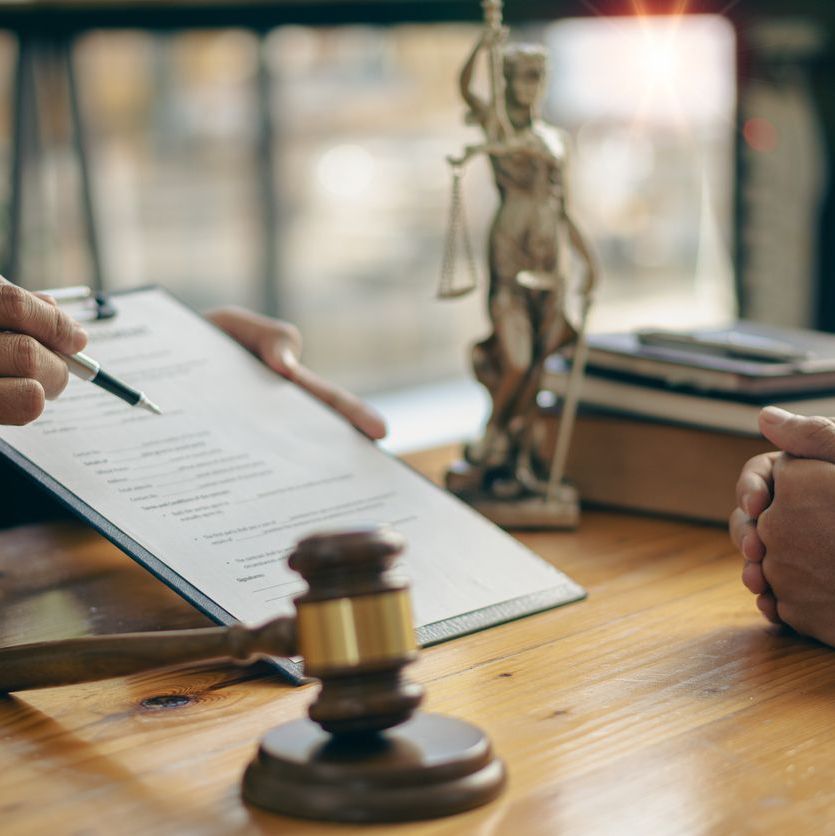Lawyer's Overview to Habeas Corpus: Safeguarding Your Liberty and Legal rights
Lawyer's Overview to Habeas Corpus: Safeguarding Your Liberty and Legal rights
Blog Article
Understanding the Duty of a Post-Conviction Legal Representative in Seeking Justice After a Criminal Sentence
In the facility landscape of post-conviction legal process, the duty of a post-conviction attorney is critical in navigating the course to justice after a criminal sentence. Past the confines of a trial, these attorneys engage in a complex strategy targeted at revealing new evidence, difficult lawful mistakes, and promoting for their customers' rights. The complexities of post-conviction job require a blend of legal acumen, investigatory skills, and calculated believing to decipher the complexities of a situation and go after avenues that might have been overlooked or underexplored. As the search of justice extends beyond the confines of preliminary process, the duty of a post-conviction attorney arises as a beacon of expect those seeking to remedy oppressions and redeem their legal rights within the legal system.
Post-Conviction Attorney's Investigative Work
Post-conviction attorneys participate in precise investigatory work to discover new proof, step-by-step mistakes, or misbehavior that can potentially cause reversing a sentence. This investigatory phase is critical in the post-conviction process as it intends to recognize any forgotten details or legal missteps that may have affected the result of the preliminary trial. Post-conviction lawyers look into instance documents, witness statements, and lawful paperwork with a fine-tooth comb, looking for any disparities or abnormalities that can be premises for allure.
With detailed investigation, post-conviction legal representatives intend to lose light on possible injustices that might have occurred during the initial trial. By scrutinizing every aspect of the lawful process, post-conviction attorneys work relentlessly to discover any type of elements that might have affected the decision.
Crafting Appeals and Petitions
In the quest of justice after a conviction, proficient attorneys meticulously craft charms and petitions to present engaging disagreements for the reconsideration of lawful choices. Crafting appeals and petitions needs a deep understanding of the lawful system, interest to detail, and tactical reasoning. Post-conviction legal representatives examine trial documents, determine prospective errors or offenses of rights, and establish legal arguments to challenge the sentence or sentence.
When crafting an appeal, attorneys concentrate on highlighting lawful errors that may have influenced the end result of the instance. They research instance law, statutes, and lawful precedents to support their disagreements. Requests, on the other hand, may include providing brand-new proof that was not readily available throughout the test or showing changes in the regulation that warrant a testimonial of the sentence.
Furthermore, post-conviction lawyers should follow strict step-by-step rules and due dates when submitting appeals and petitions. They have to present their arguments plainly and persuasively to convince the court to provide alleviation to their customers. Via thorough crafting of appeals and applications, post-conviction legal representatives make every effort to safeguard justice for individuals that have been wrongfully founded guilty or unfairly sentenced.

Going After Post-Conviction Relief
Looking for relief after a conviction needs a strategic and diligent strategy by seasoned attorneys. Post-conviction relief includes a variety of lawful systems created to challenge the legitimacy of a conviction or sentence (wyoming federal habeas corpus lawyers). These opportunities consist of submitting activities for a brand-new trial, seeking appeals, looking for writs of you could try these out habeas corpus, and providing newly found proof. Post-conviction lawyers play a vital role in navigating these intricate procedures, ensuring that all lawful options are explored to remedy oppressions that might have occurred throughout the trial or sentencing stage.
One usual form of post-conviction relief is filing an application for post-conviction alleviation, usually based on insurance claims of ineffective support of guidance, prosecutorial transgression, newly uncovered proof, or constitutional offenses. Experienced post-conviction attorneys have the abilities and understanding necessary to determine viable lawful cases, carry out investigations, and present engaging arguments to protect alleviation for their customers.
Using Forensic Evidence
When challenging a conviction or sentence, the strategic usage of forensic evidence can be a powerful tool in post-conviction legal process. Forensic evidence incorporates a wide array of clinical techniques utilized to investigate crimes and establish facts in court. Post-conviction lawyers can take advantage of forensic evidence to challenge the validity of convictions by presenting brand-new scientific findings that were not readily available throughout the original trial.

Taking Part In Sentence Alterations
Post-conviction legal representatives may discover the opportunity of sentence alterations as a legal method to attend to disproportionate or unfair sentences handed down in criminal situations. Sentence modifications involve looking for modifications to the terms of an accused's sentence after a conviction has actually happened. These alterations can include decreasing the size of a sentence, modifying the type of punishment imposed, or checking out alternate sentencing choices.
Post-conviction lawyers can go after sentence adjustments through numerous legal mechanisms, such as filing movements for sentence reduction, appealing for caring release, or negotiating plea offers for reduced sentences. They should thoroughly review the conditions of the instance, assess the legal grounds for seeking an alteration, and present compelling arguments to the court supporting the requirement for a modified sentence.
Participating in sentence alterations requires a complete understanding of criminal legislation, sentencing guidelines, and the certain procedures involved in looking for post-conviction relief. Post-conviction legal representatives play an essential duty in promoting for fair and simply outcomes by challenging sentences that are unduly rough or do not straighten with the concepts of justice.
Conclusion
Finally, the role of a post-conviction legal representative is important in seeking justice after a criminal conviction. Through investigatory job, crafting appeals and petitions, going after post-conviction relief, utilizing forensic proof, and involving in sentence modifications, these lawyers play an important role in advocating for their customers and making certain that their civil liberties are maintained within the criminal justice system. Their dedication and know-how are necessary in navigating the complexities of post-conviction process and attaining a reasonable result for people facing criminal convictions.
Report this page